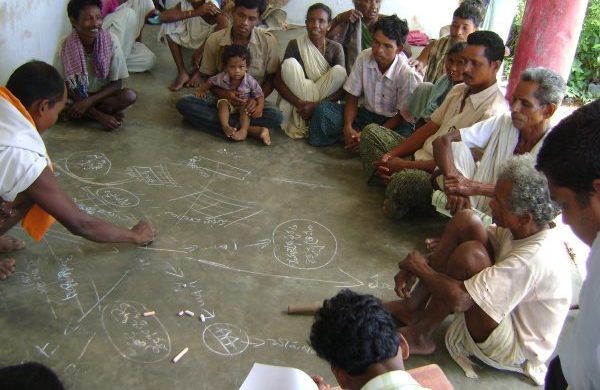“The diverse knowledge and ways of knowing of our peoples are fundamental to agroecology.” The declaration of the Nyéléni Forum on Agroecology, 2015, clearly states that agroecology is a process of collective generation, or co-creation, of knowledge. Co-creation of knowledge happens when new knowledge emerges from sharing learning and working together with other people. Solutions to problems or ways of improving emerge through experimentation, practice and learning with others, especially because different types of actors generate different types of knowledge – famers’, traditional, indigenous and scientific knowledge, to name a few.
TOP ARTICLES ON CO-CREATION OF KNOWLEDGE
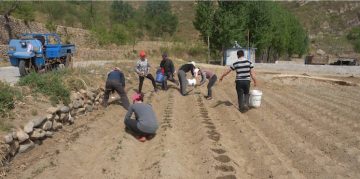 Perspectives: How peasants read their farm September 22, 2016 by Jan Douwe van der Ploeg - Whereas yield increases are considered central in modernised agriculture, they can be seen as just one element of impact in peasant farming. In assessing their farms, peasants depart from the specificities of their farm, the ecosystem in which it is embedded, the society and the markets in which they operate,… Read more
Perspectives: How peasants read their farm September 22, 2016 by Jan Douwe van der Ploeg - Whereas yield increases are considered central in modernised agriculture, they can be seen as just one element of impact in peasant farming. In assessing their farms, peasants depart from the specificities of their farm, the ecosystem in which it is embedded, the society and the markets in which they operate,… Read more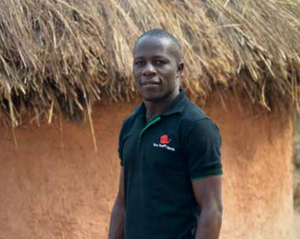 Agroecology ensures our future well-being September 22, 2016 by Eduard Mukiibi - Edward Mukiibi of Slow Food Uganda appeals to young African farmers, agronomist and food activists to embrace agroecology to safeguard our future. As a young African with a farming background, like many out there, I cannot underestimate the contributions of agroecology to the sustainability of our fragile ecosystems. It is… Read more
Agroecology ensures our future well-being September 22, 2016 by Eduard Mukiibi - Edward Mukiibi of Slow Food Uganda appeals to young African farmers, agronomist and food activists to embrace agroecology to safeguard our future. As a young African with a farming background, like many out there, I cannot underestimate the contributions of agroecology to the sustainability of our fragile ecosystems. It is… Read more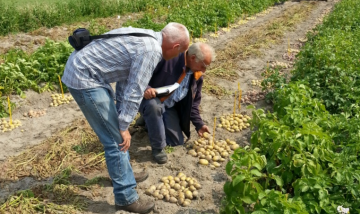 Potato breeding in the Netherlands: successful collaboration between farmers and commercial breeders April 16, 2016 by Conny Almekinders, Loes Mertens, Jan van Loon - The Dutch potato breeding model, which involves a partnership between farmers and commercial breeding companies in a modern, Western context, is unique. While there are other examples of collaborative relationships between farmers and breeders in Europe, the Dutch potato breeding model stands out in terms of its long track record,… Read more
Potato breeding in the Netherlands: successful collaboration between farmers and commercial breeders April 16, 2016 by Conny Almekinders, Loes Mertens, Jan van Loon - The Dutch potato breeding model, which involves a partnership between farmers and commercial breeding companies in a modern, Western context, is unique. While there are other examples of collaborative relationships between farmers and breeders in Europe, the Dutch potato breeding model stands out in terms of its long track record,… Read more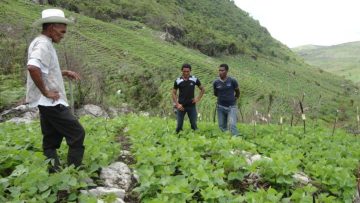 A farmer NGO-scientist synergy in Honduras March 23, 2016 by Sally Humphries, Juan Carlos Rosas, Marvin Gómez - Farmers are plant breeders when they select and save the seeds of the plants best adapted to the conditions in their fields. For over two decades, farmer breeders in Honduras have been working with scientists and NGOs to develop new bean varieties. In a context of high agrobiodiversity, limited public… Read more
A farmer NGO-scientist synergy in Honduras March 23, 2016 by Sally Humphries, Juan Carlos Rosas, Marvin Gómez - Farmers are plant breeders when they select and save the seeds of the plants best adapted to the conditions in their fields. For over two decades, farmer breeders in Honduras have been working with scientists and NGOs to develop new bean varieties. In a context of high agrobiodiversity, limited public… Read more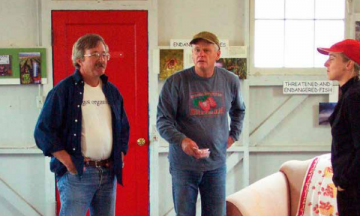 Strawberry fields forever. March 23, 2016 by Steve Gliessman, Jim Cochran - Professor Steve Gliessman and farmer Jim Cochran are among the movers and shakers of the strawberry sector in California. Since the 1980s they have been experimenting with sustainable ways to grow strawberries and with alternative food networks. Committed to the agroecological transition, they built a powerful farmer-researcher partnership that was… Read more
Strawberry fields forever. March 23, 2016 by Steve Gliessman, Jim Cochran - Professor Steve Gliessman and farmer Jim Cochran are among the movers and shakers of the strawberry sector in California. Since the 1980s they have been experimenting with sustainable ways to grow strawberries and with alternative food networks. Committed to the agroecological transition, they built a powerful farmer-researcher partnership that was… Read more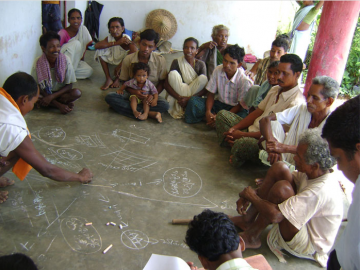 Life cycles: Climate change seen through indigenous worldviews March 23, 2016 by Sagari Ramdas - Adivasi communities in India have come together to collectively represent their cultural, agronomic and climatic calendar as they know it. Youth have been using the life cycle to reflect on the effects of climate change and people’s responses to it. This is a case of collective learning that reflects indigenous… Read more
Life cycles: Climate change seen through indigenous worldviews March 23, 2016 by Sagari Ramdas - Adivasi communities in India have come together to collectively represent their cultural, agronomic and climatic calendar as they know it. Youth have been using the life cycle to reflect on the effects of climate change and people’s responses to it. This is a case of collective learning that reflects indigenous… Read more
